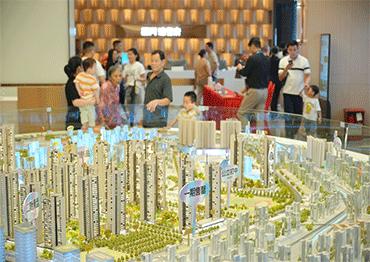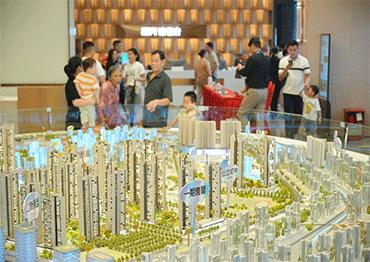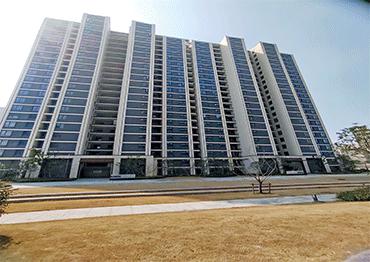The central government has granted local authorities more autonomy in dealing with property inventory, hoping they will explore new acquisition and utilization models.
Experts believe that one of the most effective applications of unsold inventory is to provide housing for displaced residents in urban village redevelopment and historic neighborhood renewal projects. As these projects once relied on time-consuming new construction, purchasing existing unsold homes offers a faster, more cost-efficient alternative.
Some local governments have already put it into practice. In Guangdong Province, the city of Foshan provided residents displaced by suburban village development projects with multiple options, including property exchanges, cash compensation or a hybrid approach. Ten pre-existing housing communities were offered as relocation options, seven of which were repurposed from existing inventory.
In Luoyang, Henan Province, officials introduced even more progressive measures. The city’s 2025 work plan released on March 11 includes 19 urban village redevelopment projects and 110 neighborhood renovations. More importantly, Luoyang has implemented a “purchase instead of build” policy that introduces three novel approaches: housing vouchers, voluntary purchase programs and bulk acquisitions. The new model utilizes existing housing stock to meet resettlement needs, a significant shift from traditional construction-based solutions.
Considering that many local governments are deploying such tools to stabilize falling property markets and facilitate the recovery of the real estate sector, the new approach could simultaneously speed up redevelopment projects and reduce housing inventory.
Another application targets elderly care. With China’s aging population creating unprecedented demand for senior housing, converting unsold properties into care facilities presents a practical solution.
Hainan Province is pioneering this approach. In March, the provincial government launched a three-year (2025- 2027) action plan to develop a “healthy aging industry.” A major highlight is reusing vacant residential properties for elder care purposes, provided they meet safety and operational standards.
In Wuhan, where unsold apartments are being transformed into university dorms, the city government is trying to replicate the model in the health sector. In February, Wuhan No.6 Hospital started expanding its Panlong District branch, which involves buying 32 floors of the Tianzongcheng Enterprise Center, a mostly empty commercial building. With a 1 billion yuan (US$137m) investment, the building will be renovated into medical facilities, including outpatient, emergency and inpatient departments, with a planned capacity of 500 beds.
These trials of repurposing unsold properties for public amenities open the door for non-real estate developers or non-State-owned businesses to become potential buyers. By exploring alternative ways to acquire and repurpose unsold properties, local governments aim to leverage this inventory to address social problems like eldercare and healthcare.
In the meantime, the central government has pledged to strengthen financial support. In October 2024, China’s Ministry of Finance proposed using special-purpose bonds to purchase unsold commercial properties as subsidized housing, with officials currently finalizing implementation details. The initiative gained further momentum in this year’s government work report, which pledged 4.4 trillion yuan (US$606b) in local government special bonds, including funds specifically earmarked for buying excess housing inventory.
“Expanding local autonomy creates testing ground for new solutions,” said Wu Jing, “The special bonds are designed to set these innovative models into motion.”
He cautioned, however, that program success hinges on balanced supply-demand dynamics, noting that all approaches, whether conventional or experimental, will require navigating complex market realities.

 Old Version
Old Version

